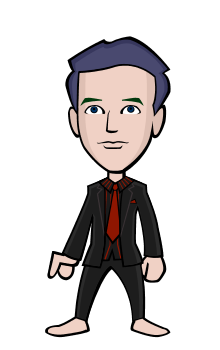“You have bipolar disorder.”
The words spoken by the psychiatrist hung in the air and echoed around my head. I was 22, severely depressed and agitated, and had just been assessed by my psychiatrist for the first time.
I had vaguely prepared myself for this diagnosis. I had done some research on bipolar and knew that after being unsuccessfully treated for depression for two years (despite having a wonderful psychologist and general practitioner), seeing a psychiatrist was naturally the next step. But it still came as a shock, I still felt out of place in my psychiatrist’s office in a psychiatric hospital and my internal voice still tried to argue the point.
Logically I knew I didn’t meet the criteria for a personality disorder or any other mental illness and logically I knew that I didn’t have typical depression. Anti-depressants either didn’t work or some made me agitated, irritable, speedy and even more suicidal (what I later learnt to be mixed states). Cognitive behaviour therapy was useless against the severe cycles of depression. So logically I knew that if I were to have a mental illness (something that was undeniable), then it would have to be bipolar disorder.
It’s hard to explain but I was in two minds about this. Part of me clutched to this diagnosis like a lifeline, desperate to get better, and part of me was still in disbelief.
There was no denying that the past few years had been hard because of my moods, but I thought that if I had a mental illness, it would have been a lot harder. For the most part I trucked along (sometimes quite erratically) and the times when I fell down only lasted for a few months and I could hide my dark moods pretty well.
When I wasn’t down, everyone including me thought I was back to ‘normal’ because I was once again my extremely driven and ambitious self, achieving goal after goal. It was like I was unstoppable. Although every time I became depressed it got worse, lasted longer and it I felt like I was drawing closer to death. Every new anti-depressant promised a brighter and carefree future, but they all let me down. I felt like I was untreatable during those dark times. So I agreed when my psychologist suggested I see a psychiatrist.
When answering questions about mania and elevation in my psychiatrist’s office, I remember thinking “I’ve never been manic.” The picture I had of a manic person was someone who was loud and brash, someone who had sexual indiscretions, someone who spent enormous amounts of money, and someone who experienced psychosis and had grandiose delusions. I answered, “ No” to all of those questions.
But then I was asked about sleep (I said there were times where I could go days without sleeping or months with only 4 hours a night), and energy levels (I said I could run 10km, swim 2km, do a 60 minute workout, walk the dog and go for a bike ride all in a day without feeling tired). I admitted that sometimes I was told that I spoke too fast and jumped from subject to subject. I had lots of energy for academic work and I once did all the assignments for a 12-month course in 2 days without sleep. I was proud that I could write a whole CD’s worth of songs in a day or fill a whole notebook with poems in a few hours. I agreed that there were times when I felt so ecstatic that it felt like I could rip open my chest to engulf everyone with my euphoria and I admitted that during those times I felt more capable, intelligent and creative than everyone else.
Without hesitation my psychiatrist diagnosed me with bipolar disorder. I wish I could say that things improved from that day, but I guess things have to get worse before they get better. Shortly after that I was admitted into a psychiatric hospital because my mixed state worsened and my behaviour become very impulsive and erratic. It was blue skies and clear sailing for a little bit after that hospitalisation – so much so that I thought everything was going fine and decided to stop my medication (never a good idea without consulting your doctor). I became manic and this time I did become psychotic, I had grandiose delusions and I spent all of my money. Needless to say I was hospitalised for 2 months.
When I was discharged, again things looked promising, but what goes up must eventually come down and I experienced the darkest and longest depression of my life and was hospitalised for 10 weeks. Things weren’t great when I was discharged and I found myself on the edge of a cliff ready to jump, but someone walking past stopped me and I started a course of electroconvulsive therapy (ECT) a few days later. Since that course of ECT life has been easier and I’m getting on top of my diagnosis.
I titled this The Day My Identity Changed because I really feel that my identity and life did change the day I was diagnosed. I don’t see this as a bad thing. It’s how I describe part of myself, and it’s how others involved in my care would describe me. Bipolar has shaped my life since I was 14, and I don’t know how many life-changing decisions I have made under the influence of my bipolar mood swings. I’m a strong believer in not becoming your illness, and there are many more things that make up who I am (that’s the same for every other person who has a mental illness), but bipolar is a big part of me. And I feel proud to belong to this resilient, inspiring and strong group of people.



